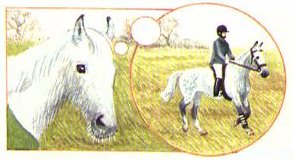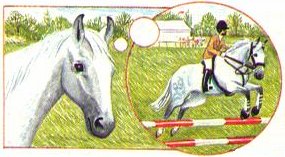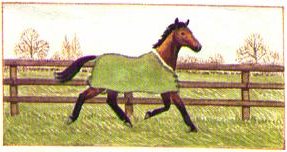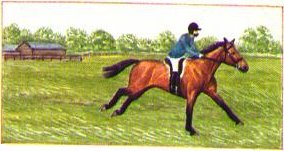Between October and April, however, grass has scarcely any nutritive value, so extra feeding is essential. As the amount and quality of grazing lessens, they will need hay, preferably fed in haynets (one for each horse) or racks. Loose hay on the ground is often wasted as it blows away, or is trampled and soiled. Make one or more piles than there are horses, to deter the field bully. The hay should not be shaken out. Hard food (concentrates) becomes necessary for all but the hardiest ponies in wet, cold weather. They need bulk to keep them warm and healthy throughout the winter. Horses working from grass can need the same amount of concentrates as fully stabled, fit horses, or even more in severe weather. They are already using up valuable energy in just keeping warm.
If it is unavoidable to keep horses on over-grazed, weedy land on which they will lose condition, they should be fed, whatever the season.
Feeds should be placed in strong bowls or portable mangers - not buckets, which will tip over. Use a separate container for each horse, spaced well apart. A timid horse that is not allowed to eat his share by another, may have to be removed and fed separately. Always feed at the same times, otherwise horses will hang around by the gate, perhaps squabbling, and poaching or wearing out the ground. Afternoon is the best time to feed before a long, cold night.
Remember, horses must have a constant supply of fresh water. They also need regular worming.
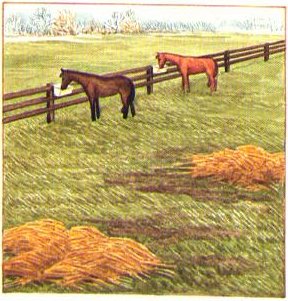
Feed bowls (and hay piles) should be spaced well apart, avoiding muddy areas. Position them so that horses may put their backs towards driving wind and rain.
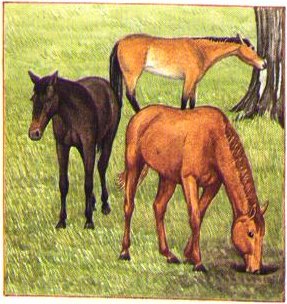
Bad pasture causes hunger, worms, loss of condition, and mineral deficiencies. If a horse appears listless, gnaws wood or eats earth, he needs a change of diet - or field.
